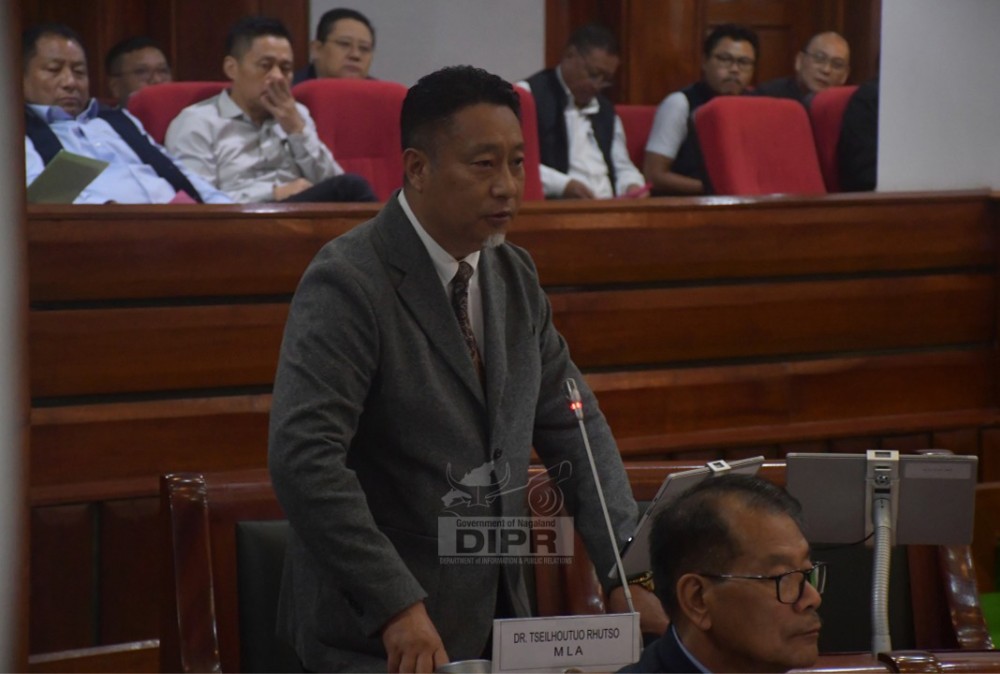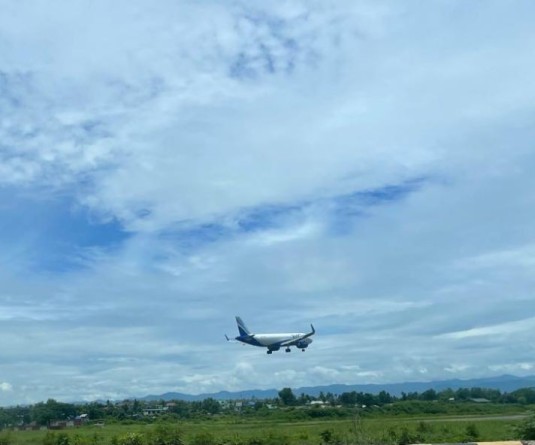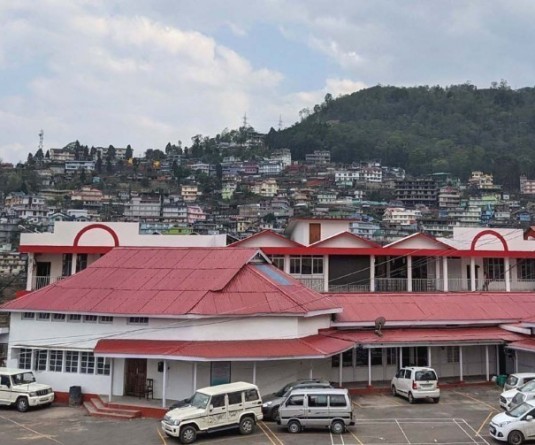MLA Dr Tseilhoutuo Rhutso speaking during the zero hour on the 2nd day of the Seventh Session of the 14th Assembly at NLA Hall, Kohima on September 4. (DIPR Photo)

Morung Express News
Kohima | September 4
Raising the issue of job and technical reservation during Zero Hour in the seventh session of the 14th Nagaland Legislative Assembly on September 4, MLA Dr Tseilhoutuo Rhutso, urged the government to adopt a more inclusive and balanced approach to ensure that benefits truly reach the deserving underprivileged sections of the society.
Making it clear that his remarks were personal views and not tied to any tribe or community, Dr. Rhutso said, he had personally witnessed the reality of the socio-economic challenges of Naga tribes while travelling under the Chief Minister’s Mobile Operation Theatre (CM-MOT) initiative.
He observed that a large section of people from both the so-called Advanced Tribes (AT) and Backward Tribes (BT) continue to remain voiceless and deprived and are silently suffering.
He asserted that it is the responsibility of those from Advantaged/Privileged Group both from AT and BT to be ‘honest’ and have some ‘empathy’ not to take away/steal their due share.
Despite Nagaland’s reservation policy in place since 1977, he pointed out that the benefits have not reached the intended section, but have largely been enjoyed by the “creamy layer.”
According to Dr. Rhutso, while 70–80% of AT and 10–20% of BT enjoy comfortable living conditions, 20–30% of AT and 80–90% of BT struggle to compete due to lack of education, exposure and opportunities.
Recapitulating the chronology on Job and Technical study Reservation Policy of the Government of Nagaland since its inception in 1977, Dr. Rhutso maintained that there is a huge disparity between the so-called AT and BT in the number and percentage of total employees in the government.
To this end, he questioned “do the lower socio-economic section (20-30%) of theAT getting the benefits of the present 60-63% of post in the general category?” and ‘are the underprivileged socio-economic section (80-90%) of the BT really benefiting from the 37% BT reservation quota?” The answer, he said is a big ‘NO’ and that the benefits are enjoyed by the creamy layer of the BT defeating the very purpose of jobs and technical study Reservation of the government’s good Policy.
He also noted that within the same Naga family 5 tribes are called Advance Tribes (AT) who still have section of people (20-30%) who are barely managing two square meals a day, while on the other hand, the 10 tribes called Backward Tribes (BT) who have a section of people (10-20%) who can have anything under the sky depriving the majority (80-90%) of the BT from availing the benefits of the Governments’ Good Policy (Reservation Policy).
Towards this end, Dr. Rhutso suggested some measures to enable the weaker section of both the AT and BT are hand held and given equal opportunities.
The suggestions are:
• Replacing AT/BT terminology: He recommended doing away with the terms Advanced and Backward Tribes and instead adopting General Category (GC) for the well-off sections of both groups, and Reservation Category (RC) for the underprivileged. Eligibility, he suggested, should be based on income levels, education background, and occupation.
• 50/50 quota division: Whether under the GC/RC model or the existing AT/BT framework, he proposed equal distribution of vacancies (50% each) to ensure equitable access and prevent monopolization by the privileged class.
• Accountability measures: Candidates applying under RC should sign a declaration/bond, he suggested, making them liable for penalties if false information is furnished.
• Backlog vacancies: Reserved posts left unfilled by a particular tribe should be passed on to the next eligible tribe to prevent delays and disqualification due to age.
• Reservation limits in higher studies: Candidates availing RC quotas in professional courses such as NEET or JEE should not be allowed to claim reservation again in state service examinations, arguing that professional fields require the “best qualified candidates.”
• One-Time Quota Access: Individuals benefiting once from RC should not be permitted to repeatedly claim reserved advantages in subsequent examinations.
Dr. Rhutso also referred to the existing 5% reservation for sportspersons and 3% for persons with disabilities, noting that such categories could be accommodated within the broader 50/50 framework.
Citing the target of Viksit Bharat 2047, he said Nagaland has 22 years to prepare for Viksit Bharat 2047 and urged policymakers to work towards reducing disparities.
In his concluding remarks, Dr. Rhutso cited the Greek classification of citizens, urging all legislators and officials to act not as “idiots” and tribesmen” but as “citizens” committed to collectively serve the people of the state.





